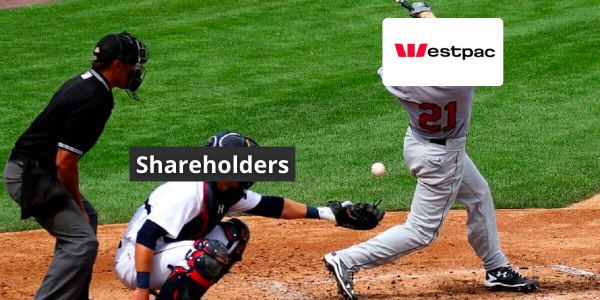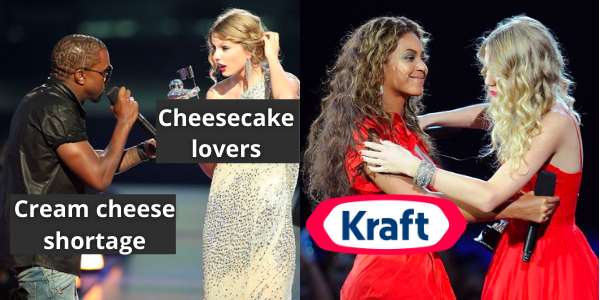Get smarter than your boss in 5 minutes with today's business news.
⚾️Westpac cops strike one from shareholders
🥯Kraft's got a crafty solution to the cream cheese shortage
🛍Zara and H&M make a massive comeback
Happy Friday, Flux fam!
Here's everything you need to know today - in under 3 minutes.
⚾️Westpac cops strike one from shareholders
🥯Kraft's got a crafty solution to the cream cheese shortage
🛍Zara and H&M make a massive comeback
We need ya help to send our 2022 newsletter to the 🌙!
We'd love to have your say on how we can improve the newsletter in our 2 minute survey. As a thank you, 3 lucky Flux readers will win a $100 Mastercard voucher. Whatcha waiting for?

Background: Westpac have had a bit of a rough year. They've been defrauded, copped $1.3 billion in write-downs, forced to pay over $100 million in fines...and now, shares are down around 20%.
What happened: Westpac shareholders are grumpier than Sex And The City fans after the new reboot (and that twist). So, when Westpac put its new executive pay plan to shareholders at the company's annual general meeting (AGM)...things didn't go to plan.
What else: Over 30% of shareholders voted against the bank's remuneration report in protest, slapping it with a first 'strike'. And in the business world, you only get two.
💡At a public company's AGM, the company will share financial results, their strategy for the future...and they'll have a vote on executive remuneration (aka, how much the top dogs and cats get paid).
💡Where 25% or more of a company's shareholders vote against the remuneration plan, the company receives a strike ❌. And for many shareholders it's about dissatisfaction with the performance of the company and its management.
💡If executives receive two strikes in two consecutive AGMs, then the shareholders may choose to spill the board (aka vote to re-elect the board). So Westpac's shareholders are handing the company a big wake-up call.

Background: Kraft Foods is the fifth-largest food and beverage company in the world. Woahh.
What happened: This crew own Toblerone, Milka and, of course, Philadelphia Cream Cheese 🤤. And unfortunately for bagel lovers (aka everyone), cream cheese is currently in short supply, thanks to labour shortages and port congestion in the US.
What else: Now, Kraft will give 18,000 people $20 to spend on any dessert they like. That way, people who can't get their hands on the delicious creamy goodness can get another tasty treat bank-rolled by Kraft.
💡It takes companies years and years to build a trustworthy brand, but sadly, it can be lost overnight. So, when brands foresee potential brand damage, they'll do anything to turn it into a positive experience.
💡Here's the thing: it costs five times more in marketing dollars to gain a new customer, than it does to serve an existing, loyal customer. On top of that, repeat customers spend 31% more with a business than a brand new customer.
💡So even though customers can't get their hands on Kraft cheese now, because Kraft turned a negative situation into a positive experience, customers will be more inclined to come back to Kraft in the future. The best defence is a good offence.
.gif)
Background: Zara is owned by the world's largest fashion retailer, Inditex. Its Swedish rival, H&M, is the second-largest retailer. And both of these companies reckon that between August and November, sales returned to - and in some cases, exceeded - pre-pandemic levels.
What happened: Inditex reported sales of $11.5 billion, with net profits of $1.9 billion. H&M also saw net sales of $8.7 billion. Geeez!
What else: This is all despite these companies having to shut stores due to restrictions around the world. It's largely thanks to some post-pandemic pent-up demand.
💡Pent-up demand is when there's a rapid increase in demand for a service or product, usually after a period of subdued spending.
💡Customers tend to hold-off making big purchases during a recession (or a global pandemic), but that demand never goes away. Instead, it builds up. Like the tension in a Home & Away ep. This demand gets unleashed when signs of a recovery emerge.
💡It's happening on home soil too. Aussies spent more than $8 billion between Black Friday and Cyber Monday. And, we're expected to spend more than $21 billion on retail post-Xmas.
Sign up for Flux and join 100,000 members of the Flux family